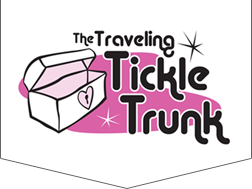Thinking You Are Addicted to Porn is Far More Damaging than Porn Itself

Last week, I read this article by David Ley, that had me almost jumping out of my chair for joy. It seems that finally somebody decided to study not the harm that pornography addiction causes, but the harm that thinking you are addicted to pornography causes.
Dr. Ley is a vocal opponent to the idea of sex and pornography addiction and has written extensively about it so I'm not surprised to see him taking this on. I am surprised to see however, that he's got a research study - done by folks at Brigham Young University no less - to back him up.
I wasn't able to get a hold of the full study, I was only able to read the abstract. But just the abstract is freaking fascinating. They looked at 686 adults, studying the amount of pornography they consumed, their levels of relationship anxiety, and their perception of themselves as being addicted to porn or not addicted to porn. Guess what they found? "Results revealed that pornography use and religiosity were weakly associated with higher relationship anxiety surrounding pornography use, whereas perception of pornography addiction was highly associated with relationship anxiety surrounding pornography use." In other words, thinking that you are addicted to porn causes far more problems for people than actually consuming porn does AND some people think they are addicted to porn when they consume far far less than other people who feel it's not a problem for them.
This is what I have been saying for quite some time. Yes, there are a lot of nasty, awful misogynistic, racist, abusive things that you can find in some porn and I do believe there is cause to be concerned about that - particularly for young people watching that kind of content. However, for the most part, the vast majority of people who consume porn at any level (which is a lot of us) don't suffer any serious ill effects from doing so. Humans are designed to be interested in sex. It's natural and common for people to be curious about watching other people have sex. It rarely poses a problem. What does cause a problem is people believing that there is something wrong with them for wanting to watch people have sex. When people get the message that there is something perverse, wrong, or terribly dangerous about doing what they are naturally inclined to do, they feel shame and guilt about it. Rarely do they stop doing it, they just feel guilt and shame. That guilt and shame leads to secrecy, denial, and the destruction of relationships.
This is why I get so concerned about the proposals I'm seeing lately to have porn education in classrooms. So far every time I've seen people advocating this in the media, what they are talking about are programs that warn kids about the supposed dangers of pornography and try to scare them away from watching it. I have yet to see anyone (except the wonderful and amazing Marty Klein who has yet to actually get his ideas into classrooms) propose education on porn that normalizes it and teaches media literacy skills - helping kids to differentiate between porn and real life sex and to interpret the messages they are seeing. Alarmist programs are only going to exacerbate the guilt and shame kids have already absorbed about sex. They are only going to make these problems worse.
As happy as I was to see this article and find out about this research study, I was surprised and put off by one of Ley's conclusions. He says "Take home message: If you are religious, you probably shouldn’t watch porn. It is likely to lead to you feeling that you’re addicted, and then developing shame around your identity and your porn use." This seems to me so completely backwards that I wonder if he was being facetious. For me, the conclusion is: try not to worry too much about watching porn and instead worry about the sex-negative messages you might be absorbing from your religion and the rest of the world around you.
When I was young, I learned some extremely negative messages about sex and masturbation that left me feeling guilty about masturbation well into my adulthood. When I was finally able to examine those and slowly let them go as not serving me, I could see that my self-exploration was wonderfully positive for me in many many ways. I believe this is a similar thing. While I don't believe that consuming porn is always positive, I do think that the guilt and shame attached to it is far more damaging than the thing itself. If we're going to spend our energy trying to eliminate something, it should be that guilt and shame, not porn.

